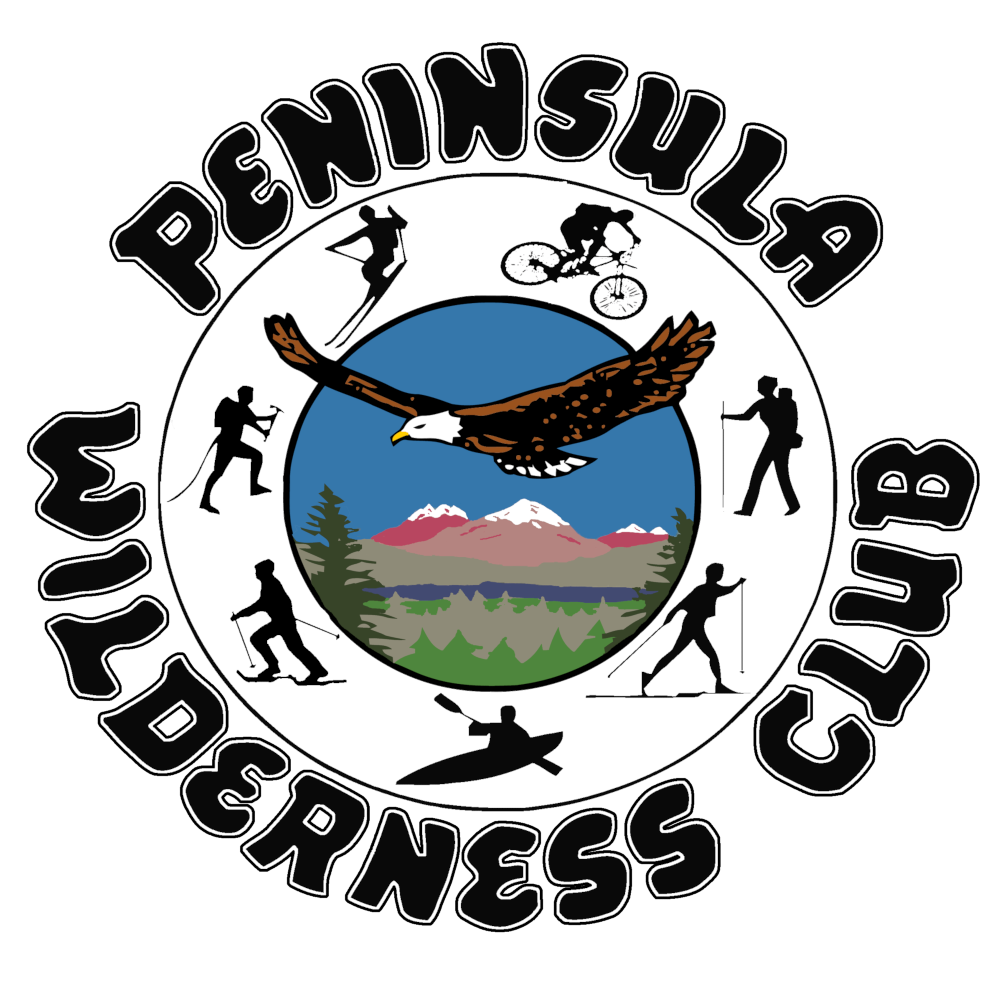The purposes of the Peninsula Wilderness Club are to promote the enjoyment, exploration, conservation, and protection of the wilderness, and toward those ends, Leave No Trace principles provide good guidelines for members to follow in the wilderness.
The Leave No Trace Program* depends more on attitude and awareness than on rules and regulations. It teaches practical conservation techniques that minimize our impact on the wilderness environment. Impact refers both to the physical changes our visits can create in the backcountry and to behavior that disturbs wildlife or diminishes the wilderness experience of fellow participants and other visitors. Trips are even more enjoyable when we know we are minimizing our impact on the land, on wildlife in the area, and on others.
Here are a few examples of how our actions can negatively impact the wilderness environment: cutting switchbacks, hiking off designated trails, and camping in non-designated camp sites can trample fragile vegetation that sometimes takes years to recover; careless disposal of waste water and/or human waste can result in water pollution (pit toilets are there to be used, and otherwise select locations well away from water sources); cell phones and radios disturb wildlife and other visitors (appropriate use requires they be turned off, packed away, and made available for emergencies only).
These are general guidelines, and before traveling into the backcountry, it is recommended that you check with the Forest Service, Park Service, Bureau of Land Management, or other managing agency for advice and regulations specific to the local environment you plan to visit. (For example, some areas may require you to carry a bear-proof canister for your food, etc.) For more information visit www.lnt.org
LEAVE NO TRACE: Outdoor Skills and Wilderness Ethics
Plan ahead and prepare
• Know the regulations and special concerns for the area you’ll visit
• Prepare for extreme weather, hazards, and emergencies
• Schedule your trip to avoid times of high use
• Visit in small groups, split larger parties into groups of 4-6
• Repackage food to minimize waste
• Use a map and compass to eliminate the use of marking paint, rock cairns or flagging.
Travel and camp on durable surfaces
• Durable surfaces include established trails and campsites, rock, gravel, dry grasses, and snow
• Protect riparian areas by camping 200 feet from lakes and streams
• Good campsites are found, not made, altering a site is not necessary
• Concentrate use on existing trails and campsites
• Walk single file in the middle of the trail, even when wet or muddy
• Keep campsites small. Focus activity in areas where vegetation is absent. Avoid places where impacts are just beginning.
Dispose of waste properly
• Pack it in, pack it out. Inspect your campsite and rest areas for trash or spilled food. Pack out all trash, leftover food, and litter
• Deposit solid human waste in cat holes dug 6 to 8 inches deep 200 feet from water, camp, and trails. Cover and disguise the cat hole when finished. Pack out hygiene products
• To wash yourself or your dishes, carry water away from streams or lakes and use small amounts of biodegradable soap. Scatter strained dishwater.
Leave what you find
• Preserve the past: examine, but do not touch, cultural or historic structures and artifacts
• Leave rocks, plants, and other natural objects as you find them
• Avoid introducing or transporting non-native species
• Do not build structures, furniture, or dig trenches.
Minimize campfire impacts
• Campfires can cause lasting impacts to the backcountry. Use a lightweight stove for cooking and enjoy a candle lantern for light
• Where fires are permitted, use established fire rings, fire pans, or mound fires.
• Keep fires small. Only use sticks from the ground that can be broken by hand
• Burn all wood and coals to ash, put out campfires completely, and then scatter cool ashes.
Respect wildlife
• Observe wildlife from a distance. Do not follow or approach them
• Never feed animals. Feeding wildlife damages their health, alters natural behaviors, and exposes them to predators and other dangers
• Protect wildlife and your food by storing rations and trash securely
• Control pets at all times or leave them at home
• Avoid wildlife during sensitive seasons: mating, nesting, raising young, or winter
Be considerate of other visitors
• Respect other visitors and protect the quality of their experience
• Be courteous and yield to others on the trail
• Step to the downhill side of the trail when encountering pack stock
• Take breaks and camp away from trails and other visitors
• Let nature’s sounds prevail. Avoid loud voices and noises.
